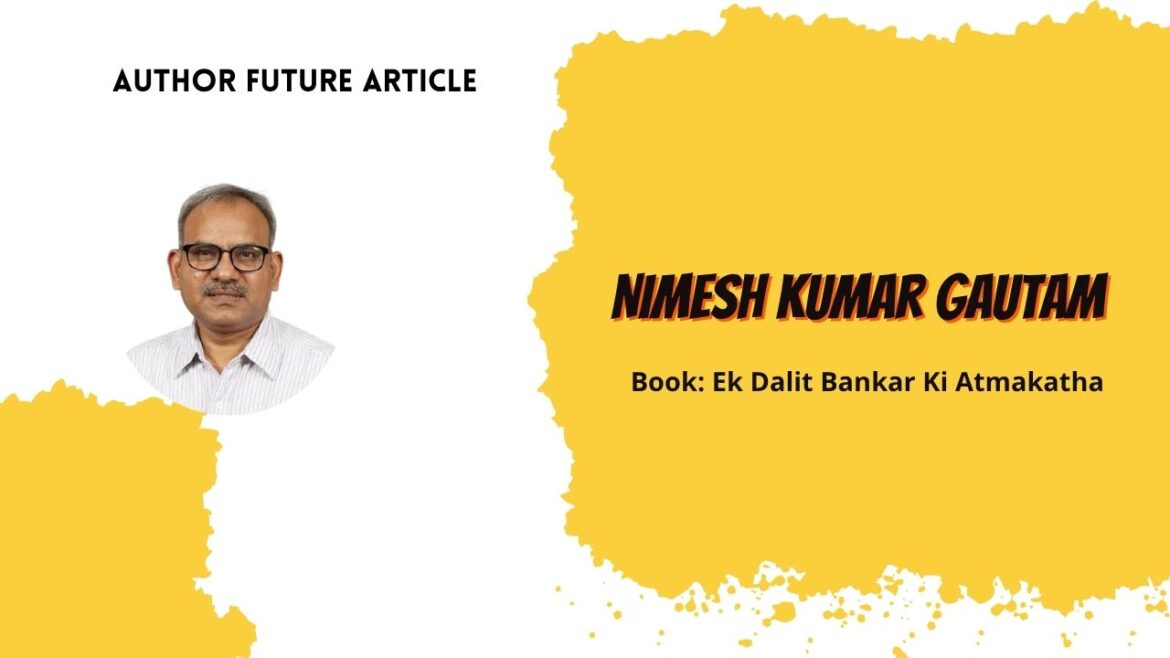In a literary landscape that often echoes with the stories of privilege and triumph, Ek Dalit Bankar Ki Atmakatha by Nimesh Kumar Gautam stands apart—not only as an honest personal memoir but as a rare and necessary testimony from within India’s bureaucratic machinery. Gautam, who served for over 40 years at the State Bank of India, chronicles a journey shaped by caste, class, resilience, and reflection.
Born in the village of Baghala in Uttar Pradesh in 1963, Gautam comes from a Dalit (Chamar) family that, through his father’s government job, experienced a modest sense of security. But as his autobiography reminds us, caste does not vanish with economic stability—it shifts forms. In this deeply introspective narrative, Gautam does not simply highlight overt discrimination, but focuses on the layered and often invisible barriers that Dalit professionals face within so-called progressive and modern workplaces.
What makes Gautam’s work especially valuable is his balanced, courageous honesty. Unlike many narratives that only confront external oppression, Ek Dalit Bankar Ki Atmakatha bravely delves into the internal challenges within the Dalit community. From subtle rivalries to struggles for dominance and recognition, the author lays bare the complexities that exist beyond the binary of oppressed and oppressor. These sections offer nuanced insights into the sociological dimensions of Dalit identity—how it evolves, contends, and persists in the heart of modern institutions.
Gautam’s autobiography is not the product of overnight inspiration. Rather, it is born from decades of thought and observation, shaped by the words of literary stalwarts like Dr. Tulsiram, Omprakash Valmiki, Daya Pawar, Urmila Pawar, Rajni Tilak, and Sheoraj Singh Bechain. These trailblazers, through works like Joothan, Baluta, and Aaydaan, opened doors for voices like Gautam’s to be heard. But Gautam adds to this chorus a fresh perspective—of someone who has negotiated with caste within the very corridors of state power and financial control.
Throughout his career, Gautam worked as a branch manager, trainer, auditor, and vigilance officer, traveling across states like Bihar, Himachal Pradesh, Jammu & Kashmir, and Punjab. His long tenure gave him a pan-Indian understanding of how caste subtly interacts with professional dynamics. While working in Eastern Uttar Pradesh, he became deeply aware of the socio-cultural isolation that persists in many regions. Yet, instead of being overwhelmed, he used these experiences as fuel to mentor younger Dalit employees and encourage them to rise with dignity.
His receipt of the Mahatma Phule Fellowship is a fitting milestone in a career marked not just by personal success but by the commitment to uplift others. With Ek Dalit Bankar Ki Atmakatha, Gautam joins the growing tradition of Dalit writers who are rewriting Indian literature—not with bitterness, but with bold clarity and hope.
This autobiography is more than a memoir—it’s an act of social documentation. It urges readers to not just listen, but to understand. And in doing so, Nimesh Kumar Gautam ensures that the voice of the Dalit banker doesn’t stay behind the counter—it reaches the conscience of the nation.



